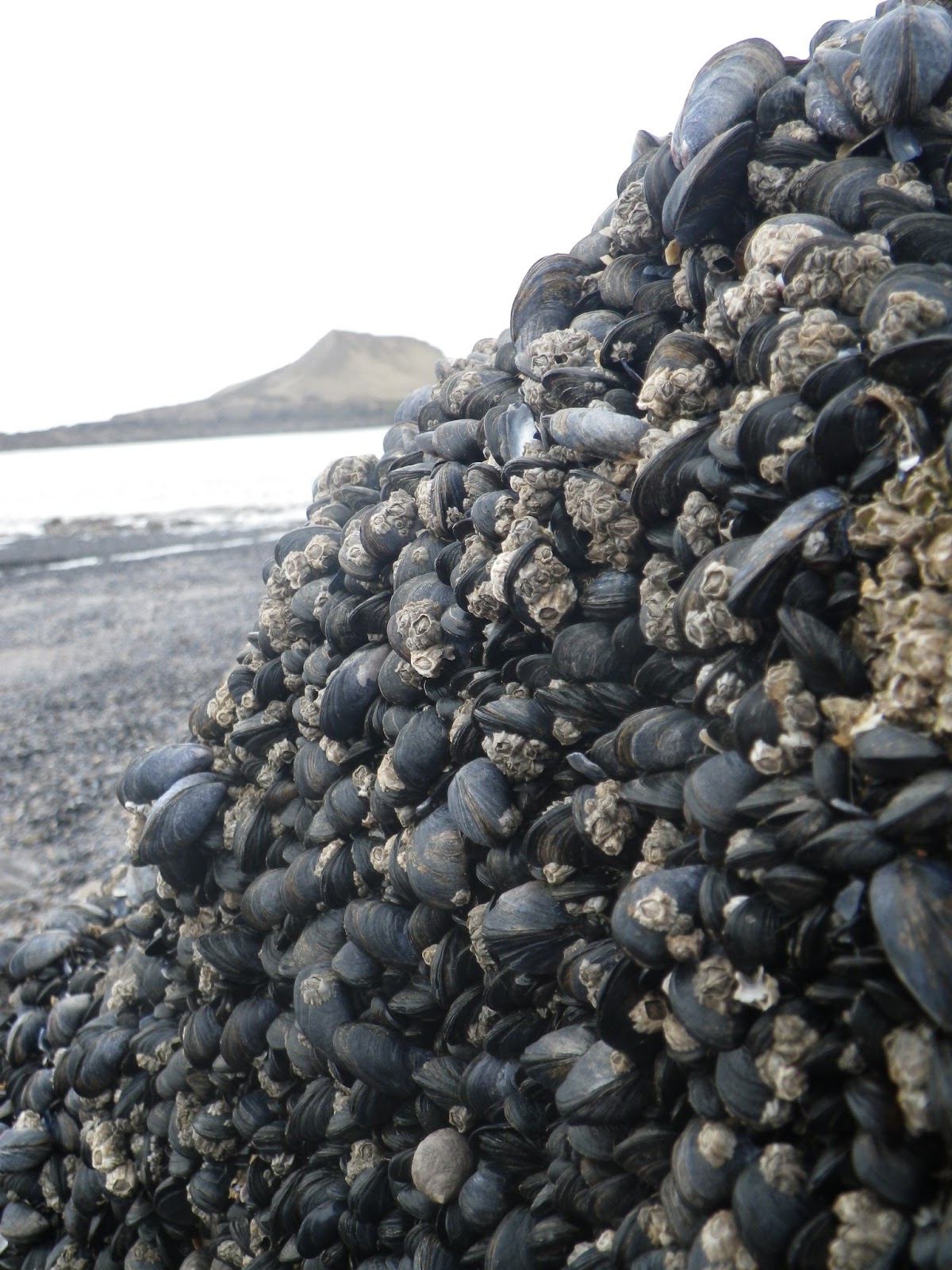As wave exposure decreases,
the threat of becoming dislodged reduces and the organisms that were
confined to the crevices can extend across the shore. Seaweed fronds are
less likely to become ripped, so forms are no longer stunted. A patch
work of barnacles and seaweeds appear with gastropods grazing on
juvenile larvae of both; helping to maintain a balance in the
competition for space. Mussels sometimes come to dominate and form beds
amongst the barnacles. Organisms that are less robust also begin to
appear but are once again often confined to the more sheltered crevices.
Below are images of the two habitat complexes within moderate energy littoral rock habitats:
 |
| Moderate energy littoral rock; barnacle and fucoid seaweeds for a patch work like distribution across the shore. Habitat Classification: LR.MLR.BF (Barnacles and fucoids on moderately exposed shores) |
 |
| Habitat Classification: LR.MLR.BF (Barnacles and fucoids on moderately exposed shores) |
 |
| Large Mussels (Mytilus edulis) can sometimes form beds on moderately exposed shores. Habitat Classification: LR.MLR.MusF (Mussels and fucoids on moderately exposed shores) |
No comments:
Post a Comment